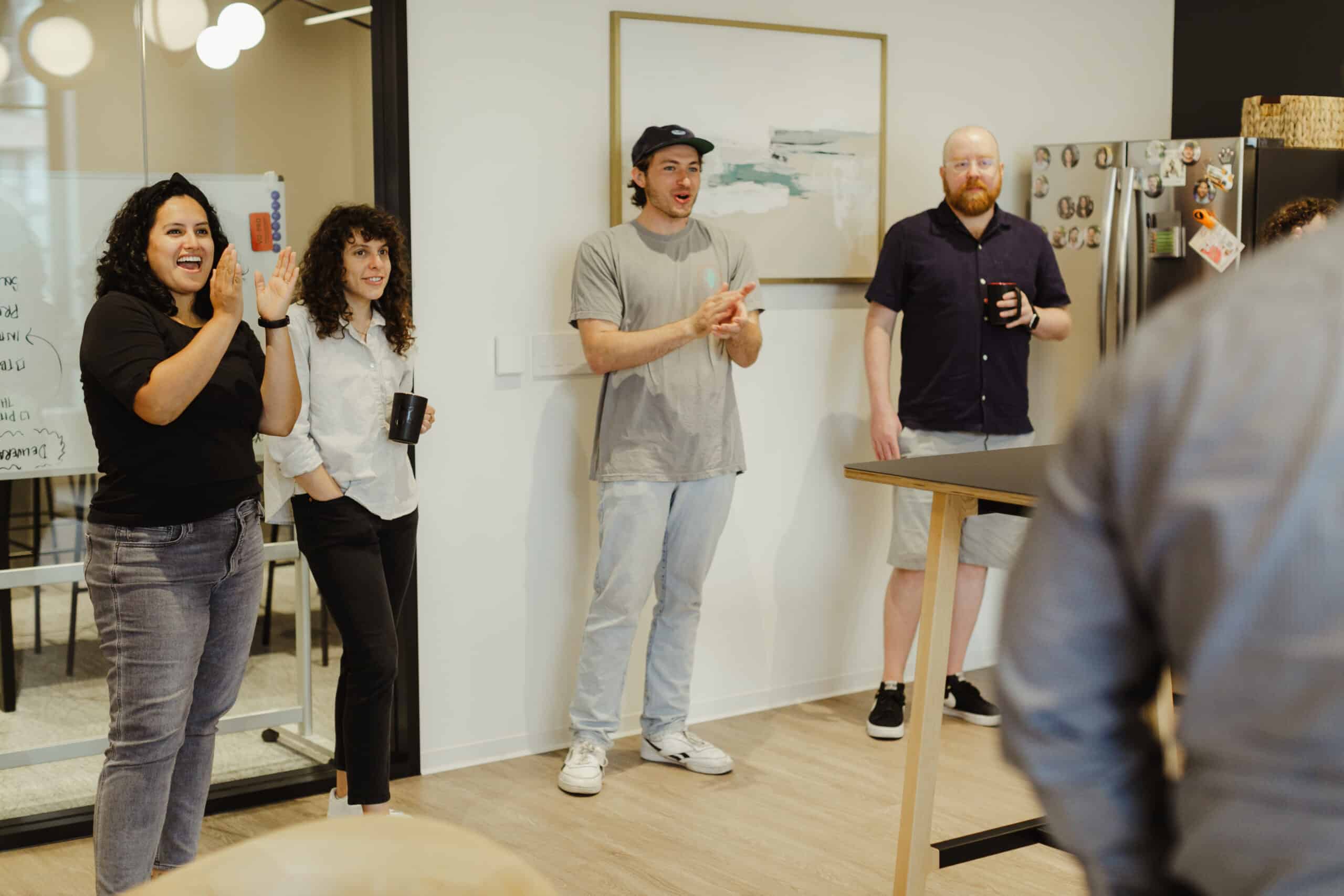Lately, I’ve been thinking a lot about how I connect to my work, particularly during long, demanding client engagements. It’s easy to focus on deadlines, deliverables, and moving from one task to the next. As a People Person working in technology, I’ve had moments where I’ve questioned how I fit in, but they’ve helped me better understand the unique value I bring.
A People Person in a Tech-First World
I’m a bleeding heart in a world of release management, Jira tickets, automated testing, and sprint burndowns. I don’t code. I support developers. I test with users in mind. I prioritize with my team’s energy in mind. In the fast-moving world of software delivery, it can be a challenge to stay connected to the human side of the work.
But I know I’m exactly where I need to be. I put the soft in software, and that’s not a weakness. That’s the heart of my role. The empathy, support, clarity, and encouragement I bring to my teams are just as essential as any technical deliverable. Sometimes I have to actively remind myself of that, even on the busiest days. My team doesn’t need another Jira power user. They need a steady hand. A people-first advocate. A teammate who clears the chaos so they can do their best work.
With that in mind, I’m setting out to build more meaning into my days at Atomic Object. Not by changing everything, but by making small, intentional shifts in how I approach my role as a Delivery Lead.
Focus on People, Not Just Deliverables
On fast-moving projects, it’s easy to get swept up in deliverables and deadlines. But what’s far more meaningful to me is the impact I can have on the people I work with, every single day.
When I’m leading a project, I’m not just thinking about “What’s the next feature we need to launch?” or “What’s due this week?”. I’m thinking:
- How can I make this easier for my team?
- How can I clear the noise so they can do their best work?
- How can I help them feel confident, calm, and supported, even in the middle of chaos?
I often joke that I’m the team’s therapist, but in a lot of ways it’s true. I’ve found that I’m most helpful when I focus less on deliverables and more on creating space for the team to do great work. That means cutting through the swirl of client demands, clarifying what really matters in that feature or sprint, setting clear and achievable priorities, testing work immediately so we can catch issues early, and providing fast, actionable feedback so we can solve problems together.
In crunch times, my focus stays steady. It’s not about pushing features out the door, it’s about protecting my team’s focus, energy, and creativity.
This shift from “What needs to get done?” to “How can I help my people succeed today?” has completely changed the way I think about success on a project. And honestly, it’s made my work feel a whole lot more meaningful, even on the toughest days. Actively reminding myself that I enjoy being a people-first team leader helps me reconnect to my own sense of purpose at peak stress moments.
Redefine Achievement
Success isn’t just about big milestones anymore. I’m learning to recognize and celebrate the smaller, people-centered wins that align with my values.
When I help a teammate work through a tough problem, or when I notice a client feel more confident after a hard decision, that’s a huge achievement. It’s these moments, not just the launched features, that make me feel like the work is worthwhile.
This mindset keeps me grounded in the human side of what we’re building, and reminds me that small wins are often the most powerful ones.
Be More Intentional With My Time
Working longer hours doesn’t necessarily mean better results. Instead, I’m focusing on using my time in ways that truly support my team and clients.
For example, when I’m in a team meeting I slow down and listen, not just push through my agenda. Creating space for collaboration and honest conversations helps build trust, and makes the work stronger.
Prioritizing the right conversations and tasks, not just the most urgent ones, leaves me feeling more connected and energized at the end of the day.
Building Meaning, One Small Shift at a Time
This journey isn’t about fixing something that’s broken. It’s about reconnecting with the parts of my work that energize me, even during the busiest, most stressful stretches. And helping my team thrive isn’t just good for morale. This is what helps us deliver great results for our clients.
I’m excited to see how these small mindset shifts help me show up with more joy, more meaning, and even stronger support for the teams and clients I’m lucky to work with.
If you’ve found ways to bring more meaning into your day-to-day work, I’d love to hear about it. Or if you’re thinking about it too, what’s one small shift you might try?
Meaningful work doesn’t just happen. It’s something we build one small shift, one day at a time.

